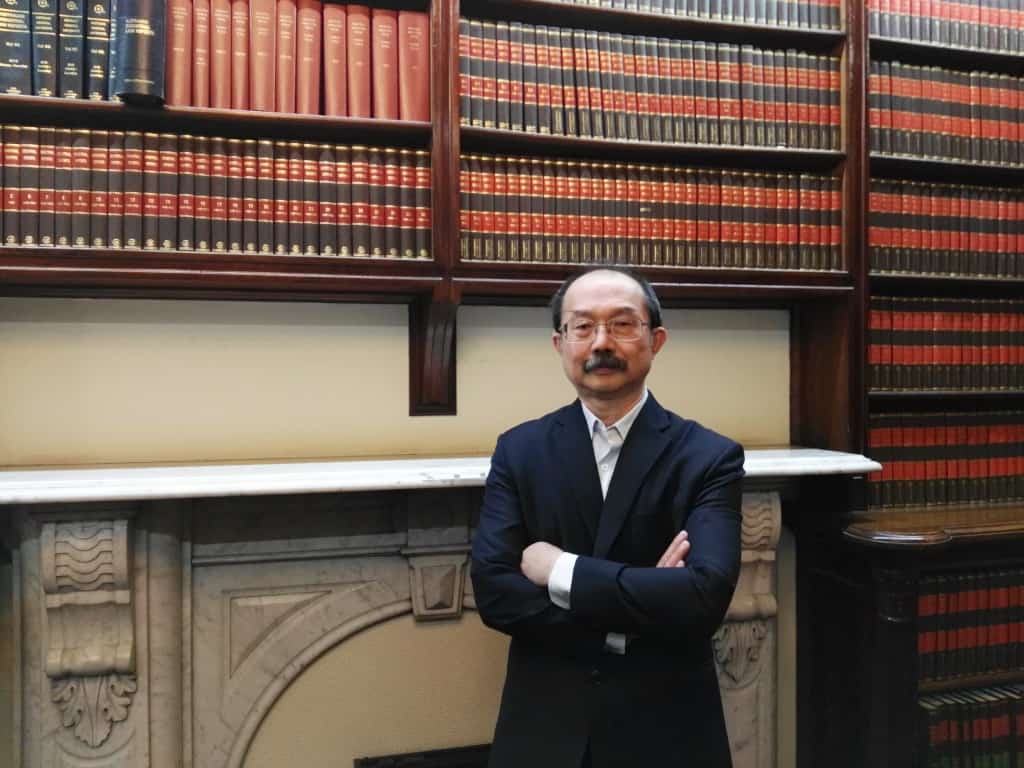
Section 46A ministerial intervention – if you are an unauthorised maritime arrival or UMA entered Australia by sea without a valid visa, you are barred by s 46A(1) from applying for a visa. However, you may request for ministerial intervention under s 46A(2) to lift the bar so that you are able to make a visa application.
Section 46A ministerial intervention – the discretionary powers given to the Minister are personal and non-compellable powers as there is no duty for the Minister to consider using any of the powers or has a duty to use any of the powers.
Normally the Minister will only intervene if the he or she thinks it is in the public interest to do so.
Ministerial intervention under Section 46A (2)
Section 46A(1) is an application bar preventing UMA in Australia from lodging a valid visa application. Section 46A also prevent a UMA who is an unlawful non-citizen or holds a bridging visa, TPV or certain temporary visa including Class UJ Subclass 790 SHEV (click here to learn more), Class UJ Subclass 449 Humanitarian Stay (Temporary Safe Haven) (Click here to learn more) and Class UO Subclass 786 Temporary (Humanitarian Concern) (Click here to learn more).
If you holds a SHEV or is a lawful non-citizen who previously held a SHEV then you may not be bar by s 46A(1) if you are applying for a BVA and you satisfy any employment, educational or social security benefit requirements.
Lifting the s 46A(1) application bar
Your ministerial intervention request under s 46A(2) will only succeed if the Minister think it is in the public interest to allow you to make a valid application of a visa of a specified class, e.g. Class XD Temporary Protection or the Safe Haven Enterprise Class XE or a Bridging (General) Class WE visa. If the s 46A(1) application bar is lifted, you may only apply for 1 visa and any subsequent application will be invalid. If you decided to lodge 2 applications for both TPV and SHEV at the same time, SHEV application will be valid, and the TPV application will be invalid.
What is and what is not in the public interest is a matter for the Minister to determine. The Minister can vary or revoke s 46A(2) determination under s 46A(2C).
Public interest power
The Minister’s public interest power under s 46A(2) and s 46A(2C) can only be exercised by the Minister personally. And the Minister, under s 46A(7), is under no obligation to consider exercising the powers under s 46A(2) or s 46A(2C).
The public interest serves to ensure that a UMA, who has made or wishes to make claims that may engage Australia’s protection obligations, is allowed to have those claims assessed under s 36(2).
If you may fail the s 501(6) character test, the public interest may be served by allowing this issue to be considered, together with your protection claims.
When will the Minister exercise his public interest power
Generally, the Minister will only consider the exercise of his public interest power in cases which are referred by the Department following a Ministerial Intervention Guidelines.
The power under s 46A(2) may only be exercised by the Minister personally. The exercise of s 46A(2) is constituted by 2 steps:
- A decision to consider exercising the power to lift the application bar;
- A decision whether to lift the bar.
Guidelines for referral of cases to the Minister
The Minister will consider whether he should exercise his s 46A(2) public interest power when the Department referred cases where:
- A UMA, who did not lodge a TPV or SHEV application before the Minister revoked their initial s 46A bar, has raised plausible protection claims and has objective evidence of compelling and compassionate reasons that were beyond their control for missing the application deadline
- A UMA has had their protection claims considered by through 1 of the Department’s non-statutory processes such as, independent merits review, protection obligations determination, ITOA or independent protection assessment and has been found to engage Australian’s protection obligations under s 36(2).
- A UMA has had their protection claims considered through a non-statutory process and was found not to engage Australia’s protection obligations; however, as a result of judicial review by an Australian court, an error of law was identified, and reconsideration of their protection claims is required.
- A UMA is a member of the same family unit of another person who has been or will be referred for consideration under s 46A(2)
- A UMA who has applied for or been granted (a) Temporary Safe Haven Class UJ Subclass 449 visa; or (b) Temporary (Humanitarian Concern) Class UO Subclass 786 visa; or (c) Safe Haven Enterprise Class XE Subclass 790 visa but wishes to lodge an application for a different class of protection, e.g. a TPV holder wishes to apply for a SHEV.
- A UMA granted a TPV after their application for a PPV was converted to a TPV application by operation of reg. 2.08F, where their TPV is due to expire and wish to apply for a further TPV or SHEV.
- A UMA has new or additional protection claims that the Department has determined warrant further consideration in a statutory process, including having unresolved non-refoulement concerns preventing removal.
- A UMA has been adversely impacted by an unanticipated or clearly unintended consequence of the Act or Regulations
- The Minister personally request a UMA’s case be referred for consideration.
Cases not meeting guidelines should not be referred
If the Department had decided that your s 46A(2) request does not meet the Ministerial guidelines, it will not be referred to the Minister for consideration of the Minister’s public interest power. The Minister expects you to leave Australia.
If your circumstances do not meet the Ministerial guidelines, but your case raises unique and exceptional circumstances, it will be referred to the Minister for s 46A(2) consideration against other Ministerial intervention guidelines (e.g. s 351, s 417 and s 501J Ministerial intervention guidelines for substituting AAT’s decision to a more favourable decision). Unique or exceptional circumstances may include strong compassionate circumstances involving an Australian family unit or children, or unremovable barriers to your removal.
How cases are referred to the Minister for s 46A(2) consideration
You (the UMA), a person whom you authorised, or the Department can make a s 46A(2) request to the Minister for his consideration to exercise his public interest power. However, the Minister expects the Department to identify cases that meet the s 46A(2) Ministerial guidelines to be referred to him for consideration.
A s 46A(2) request must be made in writing and attached either form 956 or 956A for communication between the Department and your authorised recipient.
If the Department decided to refer your Section 46A ministerial intervention request, the delegate will be required to draft a ministerial submission for the Minister to consider whether to exercise his public interest s 46A(2) power.
If the Department decided that your request does not meet the ministerial guidelines, the Department will reply, within a reasonable period, on the Minister behalf that he does not wish to consider exercising his public interest power.
If the Minister decided to exercise his s 46A(2) public interest power, he will allow you to make an application for a visa that he considers to be the most appropriate as specified in his determination.
Information required for s 46A(2) Ministerial intervention
If the Department decided that your request meet the ministerial guidelines, it will provide the following information to the Minister:
- Your circumstances
- Reasons for referring
- Recommendation regarding the most appropriate class of visa for you to apply
- Character or security concern report
- Removal or return considerations
- If it is a repeated request, whether there is a new claim not previously raised
- Employment and education participation in Australia
- History of processes to facilitate your return or removal
- Whether your presence in Australia would pose a threat to the Australian community or prejudice Australia’s international relations
- Whether you have any unfinalised court or AAT proceeding
- Any representations made by the UNHCR, the Commonwealth Ombudsman, the Australian Human Rights Commission, MPs or other key organisations
- Whether you have a close relationship with an Australian citizen or PR and not lifting the s 46A(1) application bar would result in irreparable harm and continued hardship to them
Making repeat Section 46A (2) requests
If the Minister has previously considered your request, including any request made by your representative, all subsequent requests are considered as repeat requests.
The Minister generally will not consider a repeat Section 46A ministerial intervention request and expect you to leave Australia.
In very limited circumstances such as, new or additional information is now available or your circumstances have changed, or there are unresolved non-refoulement concerns preventing your removal, or the Department has determined that further consideration in a statutory process is warranted, the Minister will consider repeat request.
You should be aware that the Minister himself is not bound by the s 46A(2) guidelines. However, the Minister’s delegates or Department’s employees are required to follow the guidelines.
Procedural fairness
If the Minister has made a decision to consider exercising the s 46A(2) power to lift the s 46A(1) application bar, processes undertaken by the Department to assist in the Minister’s consideration of the possible exercise of the power will be characterised as having a statutory basis. The rules of procedural fairness will apply to the process if it affects the person’s rights or interests.
In XAD (by her Litigation Guardian XAE) v Minister for Immigration, Citizenship, Migrant Services and Multicultural Affairs (XAD) [2020] FCA 495, Moshinsky J inferred that the Minister of Immigration requested the Department to prepare a full brief on XAD’s family, including the options that the Minister exercise the powers to lift the s 46A(1) application bar to enable them to apply for protection visas. His Honour said in instructing the Department to prepare an Assessment the Minister decided to consider exercising the power to lift the s 46A(1) bar. Moshinsky J further concluded at [14](b) that the relevant processes undertaken by the Department, including the Assessment, had a statutory basis. Such processes affected XAD’s rights or interests therefore, the rules of procedural fairness in the conduct of the Assessment applied. XAD was denied procedural fairness in connection with the Assessment.
Where the Minister decides to consider exercising the power to lift the application bar, processes undertaken by the Department to assist the Minister’s consideration of whether to exercise the power, will have a statutory basis. However, if the Minister has not made a decision to consider exercising the power to lift the bar, processes undertaken by the Department will not be characterised as statutory, and the principles of procedural fairness will generally not apply.
Similarly, if the Minister has no knowledge of or involvement in the Department’s assessment under the s 46A(2) Ministerial guidelines, then the Department’s assessment is merely an assessment and not characterised as having a statutory basis, the rules of procedural fairness does not apply.
Whether the Minister has made decision to consider exercising the power to lift the bar is a question of fact. The onus is on the applicant to establish, on the balance of probabilities, that such a decision was made.
Even though the Minister does not have a duty to consider whether to exercise the power given under s 46A(2), a Court declaration can be made if the assessor failed to observe the requirements of procedural fairness in carrying out the assessment.
Where a process with a statutory basis affects a person’s rights or interests, the rules of procedural fairness will apply to the conduct of the assessment. This is because such inquiries will prolong the person’s detention.
In XAD the applicant has to be notified of the Assessment was being conducted and invited to comment in relation to any aspect of the assessment , even though the Department had previously found the applicant was not a person to whom Australia had protection obligations, the Departmental officer who carried out the Assessment failed to observe the requirements of procedural fairness.
Australian migration law is complex and difficult to understand, contact our immigration lawyer for a consultation (fee applies) to help you understand Section 46A ministerial intervention request.

 041 222 4020 or WeChat: AUDvisa
041 222 4020 or WeChat: AUDvisa
This article is not intended to be or taken as migration legal advice. The author of this article disclaims any liability for any action or omission on the information provided or not provided in this article. You should always consult an immigration lawyer or a registered migration agent to form an informed opinion on your immigration matter.



